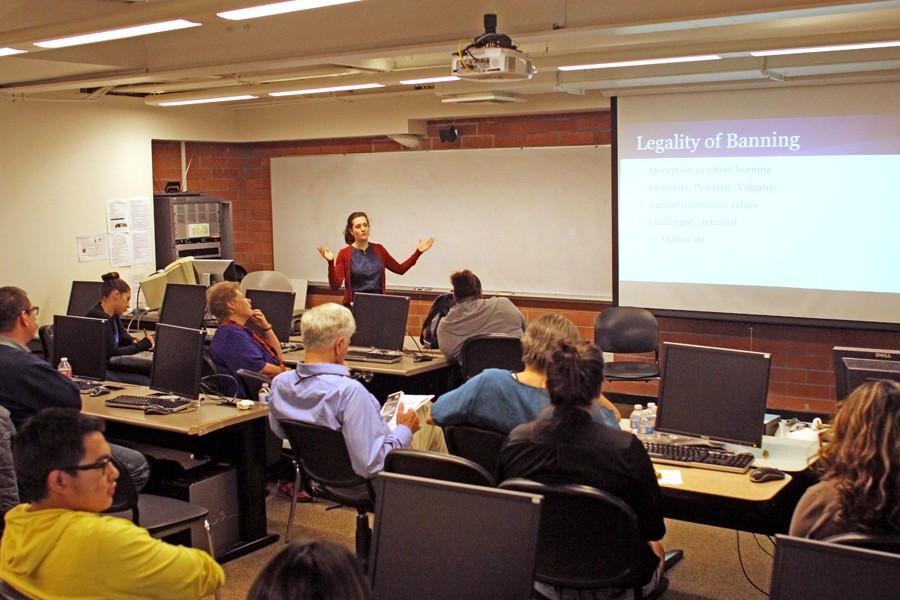Censorship stirs debate, disdain
Christian Urrutia / The Advocate
Adjunct English professor Haley Kantor introduces “The Things They Censored” book discussion as part of the Big Read event series in Library and Learning Resource Center on April 29. This event focused on the controversial content of “The Things They Carried.”
May 17, 2015
A discussion concerning the censorship around the book “The Things They Carried” allowed for students to consider censorship in itself and share their own stories in connection to the book’s content.
This Big Read event titled “The Things They Censored” was led by English professor Haley Kantor in the Library and Learning Resource Center on April 29 from 5 to 6:30 p.m.
The Big Read events, offered in different locations, and the distribution of free copies of “The Things They Carried,” have been provided by the National Endowment Grant. This has all been done in remembrance of the Vietnam War, which has reached the 40th anniversary of its ending.
Kantor began by going into detail about how, why and where Tim O’Brien’s book had been challenged. The book’s stories stem from the author’s actual experiences during his time in the Vietnam War, which then allows the book to be considered non-fiction fiction. O’Brien’s book was not welcomed everywhere. It was challenged for banning twice, in Pennsylvania in 2001 and Illinois in 2007, and was even successfully banned in Mississippi in 2003.
The discussion itself eventually caused those present to reflect on the ways that mass media are censored. To highlight this Kantor brought up a slide with a quote from the author himself, “Why do we make things up? Why don’t we just report what happens in the world?”
Fiction allows for dismissal of the events in a story, making it more acceptable, but a non-fiction fiction shows reality, Jorge Gonzalez said.
The book was banned at the beginning of the Iraq war. The impact of banning the book kept people from knowing about and thinking about what was going on with the war, Contra Costa College alumnus Sandra Falk said.
The book can provide the reader with more insight to the events and consequences that arise due to war.
“‘The Things They Carried’ offers more than what a database or encyclopedia can. There are first person stories of what it is really like, which is what sometimes falls through the cracks,” English professor Heather Roth said.
However, people did not seem to be as unhappy with graphic scenes regarding the war as they were about the language used within the book.
Reading is free expression so should people be sheltered from it if they are made uncomfortable by it? library department Chairperson Judy Flum asked.


